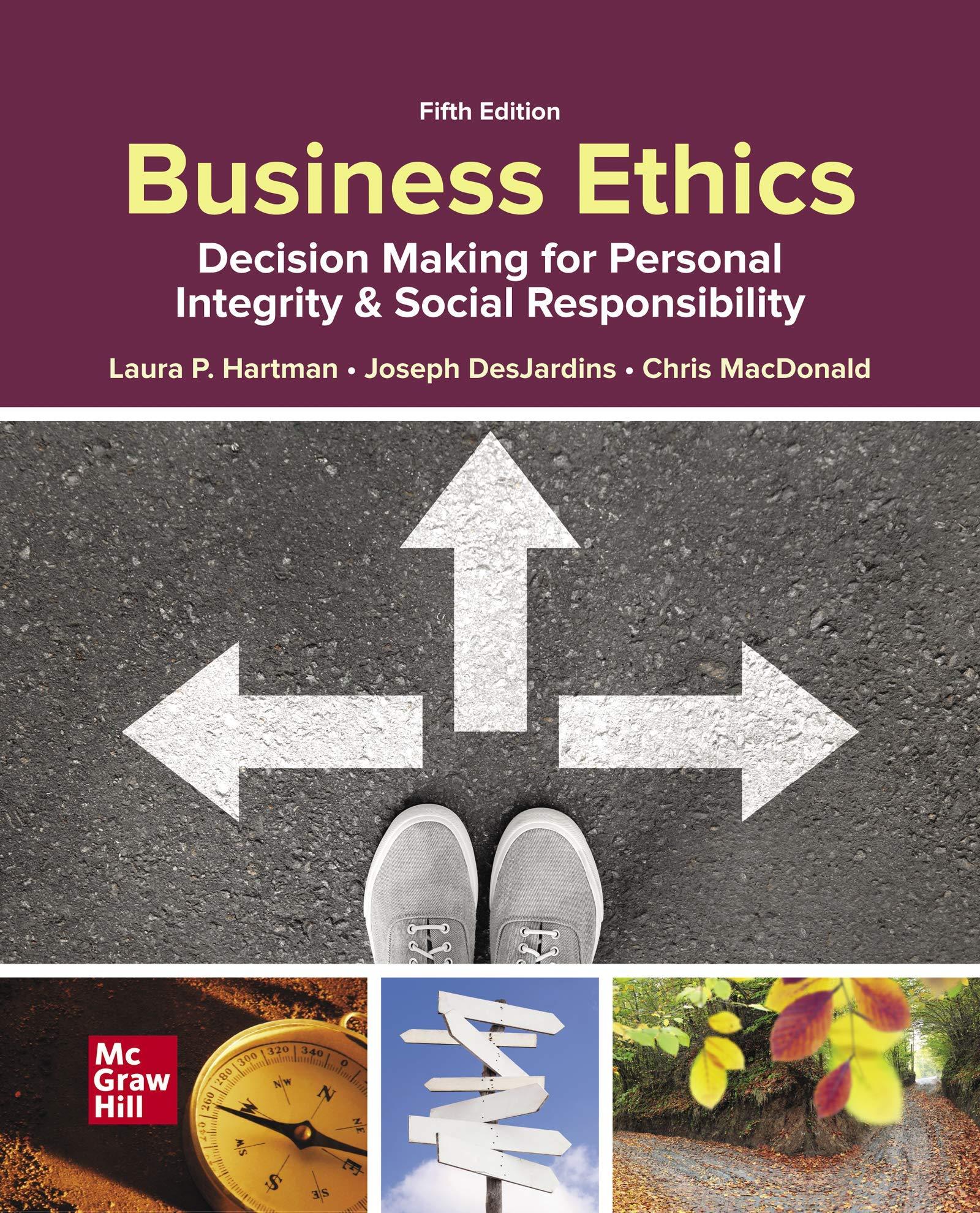Review the section on virtue ethics in Chapter 3 and explain how the agency problem would be
Question:
Review the section on virtue ethics in Chapter 3 and explain how the agency problem would be viewed from that perspective.? According to many observers, there is a deep problem at the heart of modern capitalist economies. Modern economies rely on individuals, legally known as “agents,” who work for the best interests of others, the “principals.” For the system to work, agents must be loyal representatives of their principal’s interests, even in those situations when their own personal interest is at stake. For example, a member of a board of directors may act as an agent for the stockholders, executives act as agents for the boards, and attorneys and accountants act as agents for their clients. This agent–principal model assumes that individuals can put their own interests on hold and be sufficiently motivated to act on behalf of another. But this would seem to run counter to a view of human nature that is assumed by much of modern economic theory: Individuals are self-interested—thus, the “agency problem.” How can we trust self-interested individuals to act for the well-being of others in cases where to do so their own self-interest must be sacrificed?
Step by Step Answer:

Business Ethics Decision Making For Personal Integrity And Social Responsibility
ISBN: 9781260260496
5th Edition
Authors: Laura Hartman, Joseph DesJardins, Chris MacDonald





